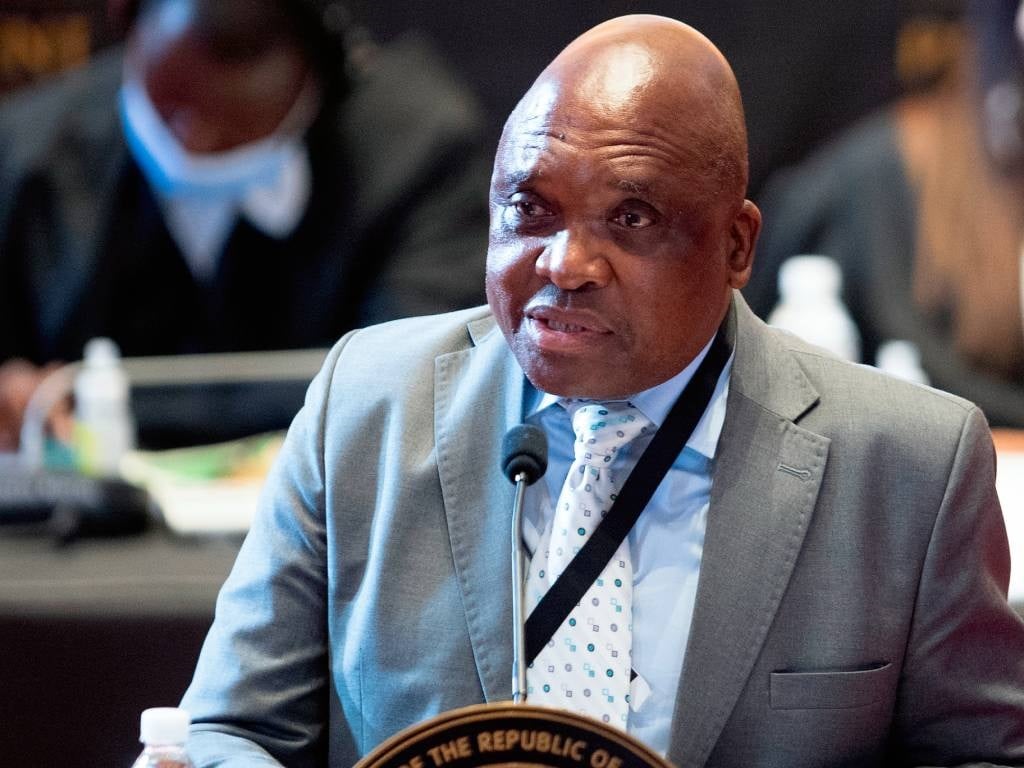
Health Minister Joe Phaahla.
- The National Assembly has passed the NHI Bill.
- Joe Phaahla called it “one of the most revolutionary pieces of legislation”.
- The bill now has to be processed by the NCOP.
The National Health Insurance (NHI) Bill is one of the most revolutionary pieces of legislation presented to the National Assembly (NA) since the dawn of democracy.
This is according to Health Minister Joe Phaahla, who was elated on Tuesday when the NA passed the controversial bill.
“The reality, honourable members, is that this situation is not sustainable. As the number of people in formal jobs is not rising in line with the investment in private healthcare and the cost of administering medical aids, the cost of subscription is rising above inflation every year, while benefits are reducing and getting exhausted before the end of every calendar year,” Phaahla said.
According to Phaahla, it is unjust that almost all healthcare professionals are trained at the expense of taxpayers.
READ | SAMA rejects NHI Bill in its current form
However, once they become specialists and super specialists, they become available to only the top payer, Phaahla said.
He said:
The availability of top health professionals to only those on medical aids and even migration to richer countries is unjust. Members of medical schemes, even in this very House, are under tremendous financial pressure – and employers are also under pressure to increase that share of the contribution. It is not sustainable.
Phaahla called on MPs to create the legal framework and foundation for the noble aims embodied in the Freedom Charter and our Constitution.
“This is one of the most revolutionary pieces of legislation presented to this House since the dawn of democracy,” he said.
The bill, which was introduced in Parliament in August 2019, seeks to realise universal health coverage for all, which means that every South African will have a right to access comprehensive healthcare services, free of charge, at accredited health facilities, such as clinics, hospitals and private health practitioners.
According to the bill, the NHI fund will cover South Africans of all races, rich or poor, as well as legal, long-term residents. There will be one pool of healthcare funding for private and public healthcare providers alike.
The bill seeks to “create mechanisms for the equitable, effective and efficient utilisation of the fund’s resources to meet users’ health needs”.
READ | NHI reaches landmark as Parliament committee gives its approval
When people visit healthcare facilities, the idea is that the NHI Fund will cover the costs of medical care in the same way medical aids pay for their members.
According to the bill, South Africans will no longer be required to contribute directly to a medical health scheme for quality healthcare.
The NHI Fund will be funded from general taxes and monthly contributions by employees to the fund.
Employers will assist the NHI Fund by ensuring that their workers’ contributions are collected and submitted, in a similar manner to UIF contributions.
The DA’s Michele Clarke said the ANC kept touting the NHI as being in the best interests of South African citizens.
She said:
Let’s take an honest look at what the implementation of the NHI Bill will mean for the ordinary South Africans. At the moment, about nine million people have medical aids. Once the NHI is implemented, these nine million people will have to be accommodated at an already overburdened public health system.
The EFF’s Naledi Chirwa said the NHI could be counted as one of the biggest scams.
“They agree to manipulate people to tell us that the NHI will bring us equality. It’s not the eradication of a two-tier system. The only way to do this is to nationalise healthcare. This NHI is to sell healthcare to the private sector,” she said.
READ | National Health Insurance will get R8.8 billion in the next three years, without a costing model
The ACDP’s Marie Sukers rejected the Bill.
“We are of the opinion that the architecture of change requires critical elements to be present. The question begs whether the lofty aims of universal healthcare, for all, can be achieved under this administration, and whether the legislation before this house, when implemented, will move us closer to this aim,” she said.
The FF Plus’ Philip van Staden said healthcare in South Africa would crumble under the complete control of the ANC.
“The truth is that the NHI is a political ploy of the ANC to secure votes for the 2024 general election. It makes promises to everyone, but in all truth there is going to remain nothing for nobody,” he said.